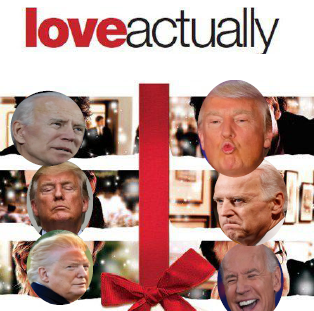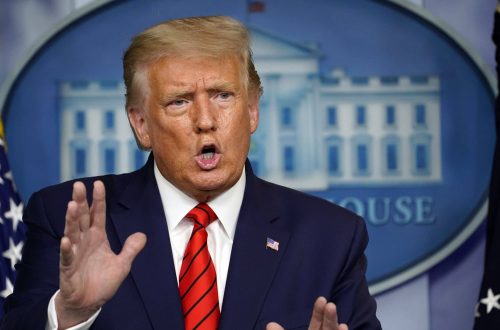
Last Night’s Presidential Debate Was A Terrible Romantic Comedy
As a self described film-enthusiast, I’ve seen my fair share of romantic comedies, affectionately known as romcoms. From 50 First Dates to Love, Actually, I’ve damn near seen it all, so you can trust me when I say that the September 29, 2020 Presidential Debate between Donald Trump and Joe Biden was a terrible romcom.
Immediately, the casting and choice of protagonists jump out as innocently misguided at best, but cruel and unusual at worst. The two main performers are, to put it lightly, coming to grips with their own obscurity, and as the audience, we are forced to watch them stake claims of relevance, distracting from the film. Younger faces with more dynamism would easily reach a broader audience and deliver stronger performances. This should not distract from the fact that not one, but both protagonists are sex offenders, leaving viewers wondering why studios take such issues so lightly, even raising the question of if these protagonists are antagonists afterall. Moreover, neither character mold really seems to fit a traditional lead: a grubby New York billionaire would be better suited to play a villain à la Scrooge McDuck whereas a senile grandfather just screams comic relief side character. I applaud this modern effort to make us question who the leaders of society are, but this dips into anarcho-realism in a way that viewers may not be well-receptive to, and is typical of bad romcoms.
Plot-wise, this debate was a slow burn that never truly crescendoed the way a conventional three-act film does. Typically, in the first act, protagonists meet for the first time and we see the “old world,” so to speak, a world unchanged that exists before the conflict found in act two, where we, like Columbus, find the New World. However, this production seems to forego the conventions of structure, moving swiftly into the conflict-filled second act upon opening, leaving no room for act-to-act transition. As if this weren’t enough, the only semblance of build up is brought strictly through unnatural, choppy, and argumentative dialogue. These protagonists did not characterize themselves, but rather characterized each other, prompting one to wonder what, if anything, we could truly believe about either character, and if the screenwriter ever learned how to ‘show’ instead of ‘tell’. Finally, the third act, though long, did nothing to resolve the conflict (verbal and sexual) we had experienced for what seemed like hours. The will-they-won’t-they device was hackneyed and drawn out, though one could make this criticism of triteness of all romantic comedies. In any case, the sweltering sexuality was indulgent to say the least, and the physical distance mandate between the leads did nothing to resolve the only meaningful conflict the film had built up.
Ultimately, this debate suffers from what many modern romantic comedies suffer from: a studio trying to churn out a profit. Big names, fearing their own irrelevance put on bold yet predictable performances that failed to convince the audience of anything they didn’t already know. At best, their performance could be called selfish — serving only to convince themselves of their own existence, and of the relevance of the world that was familiar to them. While this was a golden opportunity to create something meaningful, the studio, looking out for its bottomline, put out something flashy without substance to get people through the door, but viewers are left with a sour taste in their mouth upon the closing credits as they wonder if that was really all she wrote.




